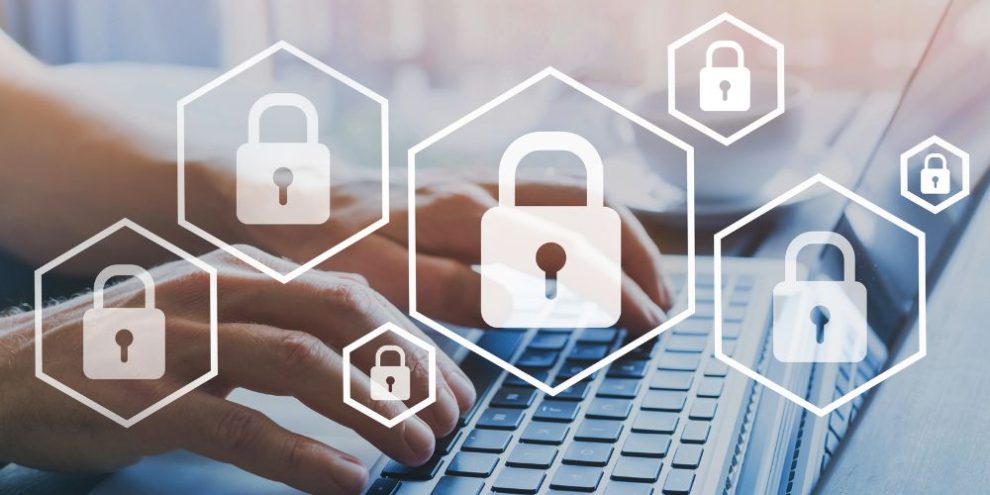
These days, much of our lives are lived online. That's why it's more important than ever to prioritize online safety. From personal information security to safeguarding against cyber threats, being vigilant and informed can go a long way in helping you and your family stay safe online.
Whether you're browsing social media, shopping online, or managing your finances, here are some top tips to help you stay safe on the internet.
1. Strong passwords and multi-factor authentication
Creating strong, unique passwords for each online account is essential. Avoid using easily guessable information and consider incorporating a mix of letters, numbers, and symbols.
Additionally, enable multi-factor authentication whenever possible to add an extra layer of security by requiring a second form of verification, such as a code sent to your phone.
Barrie's News Delivered To Your Inbox
By submitting this form, you are consenting to receive marketing emails from: Central Ontario Broadcasting, 431 Huronia Rd, Barrie, Ontario, CA, https://www.cobroadcasting.com. You can revoke your consent to receive emails at any time by using the SafeUnsubscribe® link, found at the bottom of every email. Emails are serviced by Constant Contact
2. Keep software updated
Regularly updating your operating system, antivirus software, web browsers, and other applications is crucial for staying protected against security vulnerabilities. These updates often contain patches that address potential exploits that hackers may target.
3. Be cautious with personal information
Exercise caution when sharing sensitive personal information online, such as your Social Security number or financial details.
Verify the legitimacy of platforms before sharing this information and ensure they employ robust security measures. Regularly review privacy settings on online platforms to limit access to your information.
4. Beware of phishing attempts
Be wary of unsolicited emails, messages, or phone calls requesting personal or financial information. Phishing scams often impersonate legitimate organizations to trick users into revealing sensitive data.
Verify the authenticity of requests by contacting the organization directly through official channels.
5. Use secure connections
Ensure that you're using secure connections when accessing sensitive websites, such as online banking or shopping sites. Look for "https://" in the URL and a padlock icon in the address bar, indicating that data transmitted between your device and the website is encrypted. Avoid using public Wi-Fi networks for tasks involving sensitive information.
6. Regularly back up data
Backup important files and data regularly to external hard drives, cloud storage services, or both. In the event of a cyberattack or hardware failure, having backups ensures that your data remains accessible.
7. Educate yourself and others
Stay informed about common online threats and cybersecurity best practices by following reputable sources such as cybersecurity blogs or government agencies. Educate friends, family members, and colleagues about online safety practices to collectively strengthen the community's resilience against cyber threats.
8. Practice safe social media habits
Be cautious about the information you share on social media platforms. Avoid posting sensitive details such as your home address, vacation plans, or financial information.
You also want to regularly review and adjust privacy settings to control who can see your posts and personal information.
9. Regularly review account activity
Periodically review your account activity on various platforms, including social media accounts, email accounts, and online banking portals.
Look out for any suspicious activity or unauthorized access and take immediate action if needed. This includes changing passwords or reporting the incident to the respective platform's support team.
10. Be wary of public computers and devices
Exercise caution when using public computers or devices, such as those in libraries, internet cafes, or shared workspaces.
Avoid accessing sensitive accounts or entering personal information on these devices, as they may not have adequate security measures in place to protect your data from potential threats like keyloggers or malware.
11. Limit third-party access
Be cautious about granting third-party applications or services access to your accounts and personal information. Regularly review and revoke permissions for apps that no longer need access or those you no longer use regularly. This reduces the risk of unauthorized access to your data through compromised third-party services.
12. Secure your mobile devices
Mobile devices are increasingly targeted by cybercriminals due to their widespread use. Secure your smartphones, tablets, and other mobile devices with strong PINs, passwords, or biometric authentication methods such as fingerprint or facial recognition.
Additionally, install security updates and antivirus software on your mobile devices to protect against malware and other threats.
13. Be skeptical of downloads and attachments
Exercise caution when downloading files or opening attachments from unknown sources, especially in emails or messages from unfamiliar senders. Malicious attachments can contain viruses or malware that can compromise your device's security.
Similarly, you want to avoid downloading files from suspicious websites and always use reputable sources for software downloads.
14. Monitor your credit report
Regularly monitor your credit report for any unusual activity or unauthorized accounts opened in your name.
Identity theft is a serious concern in the digital age, and monitoring your credit report can help you detect any signs of fraudulent activity early on. Promptly report any discrepancies to the credit reporting agencies and take steps to address potential identity theft.
15. Employ parental controls
If you have children or teenagers using the internet, utilize parental control features offered by internet service providers, operating systems, or third-party software to restrict access to inappropriate content and monitor their online activities.
Parental controls can help you ensure that your children are safe online and prevent them from accessing potentially harmful content or accidentally sharing personal information.
16. Report suspicious activity
If you encounter suspicious or malicious activity online, such as phishing attempts, fraudulent websites, or cyberbullying, report it to the appropriate authorities or platforms.
Reporting such incidents helps prevent others from falling victim to similar scams or attacks and contributes to making the internet a safer place for everyone.
Scams, fraud, and cybercrime should be reported for the Canadian Anti-Fraud Centre and local police.
17. Trust your instincts
If something seems too good to be true or feels suspicious online, trust your instincts and proceed with caution. It's better to be safe than sorry when it comes to protecting your online security.
By incorporating these tips into your online habits, you can better protect yourself from various cyber threats and enjoy a safer and more secure digital experience. Remember, staying vigilant and proactive is key to staying safe online in an ever-evolving digital landscape.










